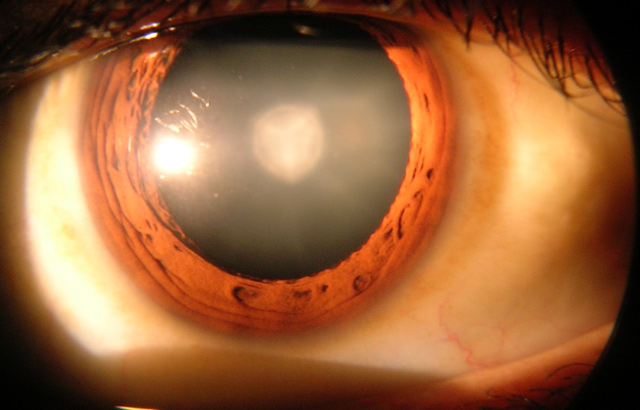Cataract Surgery
Esteem Soft Limited | 04-Dec-2021| 1.7k Last Updated: 04-12-2021 02:40 AM

Cataract surgery is a procedure to remove the lens of your eye and, in most cases, replace it with an artificial lens. Normally, the lens of your eye is clear. A cataract causes the lens to become cloudy, which eventually affects your vision.
Cataract surgery is performed by an eye doctor (ophthalmologist) on an outpatient basis, which means you don't have to stay in the hospital after the surgery. Cataract surgery is very common and is generally a safe procedure.
Why it's done
Cataract surgery is performed to treat cataracts. Cataracts can cause blurry vision and increase the glare from lights. If a cataract makes it difficult for you to carry out your normal activities, your doctor may suggest cataract surgery. When a cataract interferes with the treatment of another eye problem, cataract surgery may be recommended. For example, doctors may recommend cataract surgery if a cataract makes it difficult for your eye doctor to examine the back of your eye to monitor or treat other eye problems, such as age-related macular degeneration or diabetic retinopathy.
In most cases, waiting to have cataract surgery won't harm your eye, so you have time to consider your options. If your vision is still quite good, you may not need cataract surgery for many years, if ever.
When considering cataract surgery, keep these questions in mind:
- Can you see to safely do your job and to drive?
- Do you have problems reading or watching television?
- Is it difficult to cook, shop, do yard work, climb stairs or take medications?
- Do vision problems affect your level of independence?
- Do bright lights make it more difficult to see?
Risks
Complications after cataract surgery are uncommon, and most can be treated successfully.
Cataract surgery risks include:
- Inflammation
- Infection
- Bleeding
- Swelling
- Drooping eyelid
- Dislocation of artificial lens
- Retinal detachment
- Glaucoma
- Secondary cataract
- Loss of vision
Your risk of complications is greater if you have another eye disease or a serious medical condition. Occasionally, cataract surgery fails to improve vision because of underlying eye damage from other conditions, such as glaucoma or macular degeneration. If possible, it may be beneficial to evaluate and treat other eye problems before making the decision to have cataract surgery.
Results
Cataract surgery successfully restores vision in the majority of people who have the procedure.
People who've had cataract surgery may develop a secondary cataract. The medical term for this common complication is known as posterior capsule opacification (PCO). This happens when the back of the lens capsule — the part of the lens that wasn't removed during surgery and that now supports the lens implant — becomes cloudy and impairs your vision.
PCO is treated with a painless, five-minute outpatient procedure called yttrium-aluminum-garnet (YAG) laser capsulotomy. In YAG laser capsulotomy, a laser beam is used to make a small opening in the clouded capsule to provide a clear path through which the light can pass.
After the procedure, you usually stay in the doctor's office for about an hour to make sure your eye pressure doesn't rise. Other complications are rare but can include increased eye pressure and retinal detachment.
